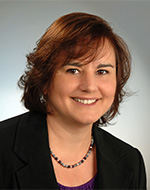TOP LOC 252023 Wireless Communication Signals: A Laboratory-Based Approach
Welcome to the course on "Laboratory-Based Learning of Wireless Communications" offered in cooperation with the Medipol University in Istanbul /Turkey.
In this dynamic and hands-on learning experience, you will delve into the intricate world of wireless communication systems, gaining practical insights through laboratory exercises, measurements, simulations, and analyses. From fundamental concepts to advanced techniques, this course aims to equip you with the knowledge and skills required to understand, evaluate, and design wireless communication systems. Through a combination of theoretical discussions, real-world experiments, and practical case studies, you will explore various aspects of wireless communications, enabling you to bridge the gap between theory and application.
Target Group
Engineers, Technicians and Administrators
Your Benefits
By the end of this course, you will:
- Understand the essential concepts and objectives of wireless communications, recognizing its significance in modern connectivity.
- Measure and interpret signal quality metrics, create informative plots, and distinguish between dB and dBm measurements.
- Analyze radio signals across various dimensions—time, frequency, code, modulation, and angular domains—as well as comprehend Multiple-Input Multiple-Output (MIMO) systems.
- Develop simulation models, conduct link-level simulations, and evaluate performance in both Additive White Gaussian Noise (AWGN) and network-level contexts.
- Identify sources of impairments, assess IQ modulations, account for power amplifier nonlinearities, and analyze effects of phase noise and ADC/DAC imperfections.
- Grasp the basics of digital modulation, explore popular schemes, adapt modulation techniques, and understand the role of pulse shaping filters.
- Comprehend the rationale for Orthogonal Frequency-Division Multiplexing (OFDM), design and evaluate OFDM-based systems, and analyze receiver performance.
- Study communication behavior in AWGN, investigate fading effects in both flat and frequency-selective channels, and extend knowledge to wideband systems.
- Differentiate between orthogonal and non-orthogonal multiple access methods, explore random access strategies, and apply hybrid waveform designs.
- Explore propagation phenomena, multipath effects, channel interference, and techniques for channel modeling, measurement, and emulation.
- Model wireless signals, employ synchronization approaches for carrier and time synchronization, and understand synchronization's role in reliable communication. Comprehend blind signal analysis and its applications, study case examples involving blind receivers, and explore the integration of machine learning.
- Construct radio environment maps, delve into sensing domains, understand the integrated sensing and communication framework, and explore real-world applications.
Methods
Instructor Leader Led/ILL: Physical classroom environment
Key Features
- Laboratory-Based Learning of Wireless Communications
- Importance and Objectives
- Performance Metrics and Measurements
- Signal Quality Measurements
- Visual Inspections and Useful Plots
- Cognitive Radio and SDR Measurements
- Other Measurements
- Clarifying dB and dBm
- Multi-Dimensional Signal Analysis
- Multiple Dimensions in a Radio Signal
- Time Domain Analysis
- Frequency Domain Analysis
- Joint Time-Frequency Analysis
- Code Domain Analysis
- Correlation Analysis
- Modulation Domain Analysis
- Angular Domain Analysis
- MIMO Measurements
- Simulating a Communication System
- Approaching a Simulations
- Basic Modelling Concepts
- Link Level Simulations
- Communications in AWGN
- Multi-Link vs. Network Level Simulations
- Practical Issues
- Limitations of Simulations
- RF Impairments
- Radio Impairment Sources
- IQ Modulations and Impairments
- PA Nonlinearities
- Phase Noise and Time Jitter
- Frequency Offset
- ADC/DAC Impairments
- Digital Modulation and Pulse Shaping
- Digital Modulation Basics
- Popularly Used Digital Modulation Schemes
- Adaptive Modulation
- Pulse Shaping Filtering
- OFDM Signal Analysis and Performance Evaluation
- Why OFDM
- Generic OFDM System Design and Its Evaluation
- OFDM-Like Signaling
- Case Study: Measurement-Based OFDM Receiver
- Analysis of Single Carrier Communication Systems
- A Simple System in AWGN Channel
- Flat Fading (Non-Dispersive) Multipath Channel
- Frequency Selective (Dispersive) Multipath Channel
- Extension of Dispersive Multipath Channel to DS-CDMA-based Wideband Systems
- Multiple Accessing, Multi-Numerology, Hybrid Waveforms
- Preliminaries and Definitions
- Orthogonal Design
- Non-orthogonal Design
- Random Access
- Multiple Accessing with Application-Based Hybrid Waveform Design
- Case Study
- Wireless Channel and Interference
- Fundamental Propagation Phenomena
- Multipath Propagation
- Channel as a Source of Interference
- Channel Modelling
- Channel Measurement
- Channel Emulation
- Wireless Channel Control
- Carrier and Time Synchronization
- Signal Modeling
- Synchronization Approaches
- Carrier Synchronization
- Time Synchronization
- Blind Signal Analysis •
- Blind Signal Analysis and Its Applications
- Case Study: Blind Receiver
- Machine Learning for Blind Signal Analysis
- Radio Environment Monitoring and Integrated Sensing and Communication
- Radio Environment Map
- Generalized Radio Environment Monitoring Framework
- Integrated Sensing and Communications
- Sensing Domains and Their Measurements
- Applications and Use-cases
Events
Dates on request / Language: English, Turkish
Duration
10 DaysEvents
Dates on request / Language: English, Turkish
Customized training
We tailor the content and duration of the trainings according to your individual needs.
Certificate
TOP Certification
